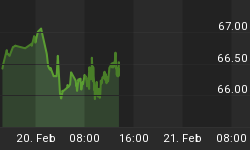While alternative fuel commercial trucks are gaining interest from fleet operators, diesel is still set to dominate medium- and heavy-duty vehicles for several years.
That statement came from Kary Schaefer, general manager of marketing and strategy for Daimler Trucks North America, during a keynote speech last week at the Work Truck Show in Indianapolis. Daimler Trucks is taking alternative fuels seriously, but it pales in comparison to its full diesel-powered truck lineup as the world’s largest truck manufacturer.
Daimler’s Freightliner Trucks subsidiary offers natural gas-powered trucks, and its Fuso division is rolling out the eCanter electric medium-duty truck and the E-Fuso Class 8 electric truck. Daimler Trucks sees itself becoming competitive with the Tesla Semi electric heavy-duty truck and other electric commercial vehicles coming to market.
Schaefer said that diesel will be the transportation fuel of choice for fleet operators for the foreseeable future. Speaking at the conference’s Green Truck Summit, Schaefer acknowledged that alternative fuels and green technologies will play a significant role in the trucking industry. For now, diesel is still the most efficient and cost-effective fuel and that will be the case for quite a few years, the Daimler executive said.
Schaefer analyzed the challenges that companies like Tesla will have in selling electric vehicles to trucking companies that haul goods over long stretches of highway.
Natural gas and electric have become the most talked-about alternative to diesel, but their limitations are causing fleet operators to explore the business costs and practicality, she said. Limited fueling and charging stations, compared to ample diesel fueling pumps around the world, highlight one of the most serious challenges alternative fuels face in reaching adoption in the commercial vehicle sector. Related: Here’s What’s Next For Electric Cars
Battery-electric vehicles raise four issues for fleets - range, weight, cost, and charging, Schaefer said. Commercial trucks face several factors that don’t apply to light-duty passenger vehicles. The electric truck’s range will be affected by temperature, cargo loads, and speed traveled on highways.
The weight factor can be puzzling for electric vehicle manufacturers. Longer range electric trucks needs more batteries, which adds to the truck’s weight. Adding extra weight, along with the heavy payload, diminish the truck’s range. Truck operators that send freight shipments several hundred miles a day are very concerned that electric trucks don’t have the needed range capacity.
Compressed natural gas (CNG) and liquefied natural gas (LNG) trucks face similar challenges. The tanks needed to run the truck on natural gas add to the vehicle’s weight and take away some of the onboard space needed for cargo containers.
Electric vehicle batteries will be coming down in cost over the years. For now, EVs and natural gas trucks face resistance from many fleet operators. They tend to be most concerned about keeping fleet costs contained and drivers out on the road for long trips.
Investing in an EV charging infrastructure and natural gas fueling stations can be quite costly. The vehicle acquisition costs can also be high, though government incentive programs are taking some of the edge off the higher prices.
Alternative fuels are making their gains, but the numbers are still small for truck operator adoption.
Toyota’s Hino Trucks subsidiary would be in agreement with Daimler Trucks. During the Work Truck Show, the company announced that its new Hino XL Series rounds out its Class 7 offerings and launches them into the Class 8 market for the first time in the U.S.
The Hino XL7 and XL8 models are powered by Hino’s A09 turbo diesel 8.9-liter inline 6-cylinder engine. The company said it will mean a B10 rating of 1 million miles, which is the trucking industry’s standard for over-the-road service.
Hino has been known primarily in the medium-duty truck market, but has been taking steps forward in the heavy-duty weight classes for global markets. Truck owners are looking for solid standard features, durability, reliability, and a cost-effective ownership experience, Hino said.
Trucks makers and fleet operators have been impressed with technology improvements made to diesel trucks in the past decade. They’ve become more fuel efficient and stable, low diesel prices are helping make a strong business case for purchasing diesel trucks. Related: Gas Exporters Want Oil-Linked Prices
ADVERTISEMENT
They’re also impressed with connected, automated systems being added each year to commercial trucks. Active safety systems are taking the lead, such as collision mitigation technology that reduces collisions by sending warnings and applying braking on stationary and moving objects. Lane departure warning systems protect the truck from shifting lanes accidentally, and keep it centered in the original lane.
“All of these will increase uptime and provide asset utilization. They provide a business case to make your operation more profitable,” Schaefer said.
Truck operators are watching closely as truck makers test out autonomous vehicles. Once these vehicles are allowed on the highways by government officials, companies will cut costs deploying self-driving trucks by hiring fewer drivers and making sure trucks perform as efficiently as possible.
By Jon LeSage for Oilprice.com
More Top Reads From Oilprice.com:
- Oil Profits Are Fueling South Sudan’s Civil War
- IEA Predicts Nightmare Scenario For OPEC
- The Truth About U.S. Energy Dominance



















I guess the talk in Daimler that "laws of physics still apply and that therefore the Tesla Semi can't work" needed to be changed now that Tesla is doing their public test-runs...
So let's talk about light EV trucks: fact is, aside from UPS & Co. who are driving the electrification of their delivery vans like there is no tomorrow, SMEs are electrifying their transport, too: check out StreetScooter for instance: they are Europe's biggest EV maker and produce light EV trucks only...
The switch to EVs for transportation will happen a lot more rapidly than people realize.
"DHL Exec: Tesla Semi Trucks To Pay For Themselves In 1.5 Years"
https://cleantechnica.com/2018/02/24/dhl-exec-tesla-semi-trucks-pay-1-5-years/
"Analyst Report: The Economic Case For The Tesla Semi-Truck"
https://www.trucks.com/2018/01/11/analyst-report-tesla-semi-truck/